Michael Swanwick's Blog, page 148
June 20, 2014
Mind Candy for a Friday
.
Every day brings new wonders. Here's a time lapse film made by the Hubble of the light echo from a star experiencing some not-understood phenomenon which, despite appearances, is not a nova.
You can read NASA's explanation here.
Enjoy!
*
Every day brings new wonders. Here's a time lapse film made by the Hubble of the light echo from a star experiencing some not-understood phenomenon which, despite appearances, is not a nova.
You can read NASA's explanation here.
Enjoy!
*
Published on June 20, 2014 12:03
June 18, 2014
The Least Needed Book Promo Ever Made
.
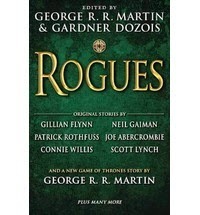
Periodically I get missives, some imperial and others imploring, from editors of anthologies in which I have a story, telling me to get out the drums and flog the living bejabbers out of the book. This morning, it was Gardner Dozois, informing me that Rogues , which he co-edited with George R. R. Martin, hits the stands today and desperately needs my help.
Yeah, right. Here, to give you a little context, is the table of contents:
Joe Abercrombie “Tough Times All Over”
Gillian Flynn “What Do You Do?”
Matthew Hughes “The Inn of the Seven Blessings”
Joe R. Lansdale “Bent Twig”
Michael Swanwick “Tawny Petticoats”
David Ball “Provenance”
Carrie Vaughn “The Roaring Twenties”
Scott Lynch “A Year and a Day in Old Theradane”
Bradley Denton “Bad Brass”
Cherie Priest “Heavy Metal”
Daniel Abraham “The Meaning of Love”
Paul Cornell “A Better Way to Die”
Steven Saylor “Ill Seen in Tyre”
Garth Nix “A Cargo of Ivories”
Walter Jon Williams “Diamonds From Tequila”
Phyllis Eisenstein “The Caravan to Nowhere”
Lisa Tuttle “The Curious Affair of the Dead Wives”
Neil Gaiman “How the Marquis Got His Coat Back”
Connie Willis “Now Showing”
Patrick Rothfuss “The Lightning Tree”
George R. R. Martin “The Rogue Prince, or, the King’s Brother”
And this is the point where I'm expected to rave about how Rogues is that extremely rare beast, an anthology containing science fiction, mystery, historical fiction, epic fantasy, sword and sorcery, crime stories, and mainstream, all chosen simply because they're extremely good stories. And that my own "Tawny Petticoats," skips ahead to a point in the peregrinations of arch-conmen Darger and Surplus wherein they discover the dubious pleasures of Postutopian New Orleans. Then maybe ladle a few bucketloads of adjectives over the whole magisterial enterprise.
But did you notice the last item on the list? That, my friends, is not only a new story by George, but one set in the world of A Song of Ice and Fire . This puppy is going to sell itself. It doesn't need any help from me.
But because these guys are friends, and because I want all my editors to know that I am a cooperative fellow, I have just gone through the motions.
And speaking of George . . .
“The Rogue Prince, or, the King’s Brother” was not originally on the table of contents. The book was sold without any requirement that George contribute a story. He wrote the story as a gift to his fans.
Also because he's a writer, and this is the sort of thing real writers can't help but do.
*

Periodically I get missives, some imperial and others imploring, from editors of anthologies in which I have a story, telling me to get out the drums and flog the living bejabbers out of the book. This morning, it was Gardner Dozois, informing me that Rogues , which he co-edited with George R. R. Martin, hits the stands today and desperately needs my help.
Yeah, right. Here, to give you a little context, is the table of contents:
Joe Abercrombie “Tough Times All Over”
Gillian Flynn “What Do You Do?”
Matthew Hughes “The Inn of the Seven Blessings”
Joe R. Lansdale “Bent Twig”
Michael Swanwick “Tawny Petticoats”
David Ball “Provenance”
Carrie Vaughn “The Roaring Twenties”
Scott Lynch “A Year and a Day in Old Theradane”
Bradley Denton “Bad Brass”
Cherie Priest “Heavy Metal”
Daniel Abraham “The Meaning of Love”
Paul Cornell “A Better Way to Die”
Steven Saylor “Ill Seen in Tyre”
Garth Nix “A Cargo of Ivories”
Walter Jon Williams “Diamonds From Tequila”
Phyllis Eisenstein “The Caravan to Nowhere”
Lisa Tuttle “The Curious Affair of the Dead Wives”
Neil Gaiman “How the Marquis Got His Coat Back”
Connie Willis “Now Showing”
Patrick Rothfuss “The Lightning Tree”
George R. R. Martin “The Rogue Prince, or, the King’s Brother”
And this is the point where I'm expected to rave about how Rogues is that extremely rare beast, an anthology containing science fiction, mystery, historical fiction, epic fantasy, sword and sorcery, crime stories, and mainstream, all chosen simply because they're extremely good stories. And that my own "Tawny Petticoats," skips ahead to a point in the peregrinations of arch-conmen Darger and Surplus wherein they discover the dubious pleasures of Postutopian New Orleans. Then maybe ladle a few bucketloads of adjectives over the whole magisterial enterprise.
But did you notice the last item on the list? That, my friends, is not only a new story by George, but one set in the world of A Song of Ice and Fire . This puppy is going to sell itself. It doesn't need any help from me.
But because these guys are friends, and because I want all my editors to know that I am a cooperative fellow, I have just gone through the motions.
And speaking of George . . .
“The Rogue Prince, or, the King’s Brother” was not originally on the table of contents. The book was sold without any requirement that George contribute a story. He wrote the story as a gift to his fans.
Also because he's a writer, and this is the sort of thing real writers can't help but do.
*
Published on June 18, 2014 06:21
June 17, 2014
Another Strange Mind Gone
.

Cartoonist Charles Barsotti died today. Today he's best remembered for his New Yorker cartoons, particularly those of puppies. But back in the day, he had a daily newspaper strip, Sally Bananas , which was whimsical and gentle and a delight to read.
Also occasionally weird. Barsotti had streak of strange to him a mile wide. I vividly remember a one-page cartoon he did for National Lampoon . The image of it is not available on the web, but I can quote the words verbatim:
Alice came to our house,
We thought she'd come to stay.
"I've to to stay at your house."
But then she went away.
Alice went down to Laredo,
She went to Laredo by car.
But you can't get from here to Laredo --
From here to Laredo's too far.
And then a final panel, showing Alice looking despondent in a bar with a mug of beer and the punchline: TOUGH SHIT, ALICE!
You can read what the New Yorker has to say about him here.
*

Cartoonist Charles Barsotti died today. Today he's best remembered for his New Yorker cartoons, particularly those of puppies. But back in the day, he had a daily newspaper strip, Sally Bananas , which was whimsical and gentle and a delight to read.
Also occasionally weird. Barsotti had streak of strange to him a mile wide. I vividly remember a one-page cartoon he did for National Lampoon . The image of it is not available on the web, but I can quote the words verbatim:
Alice came to our house,
We thought she'd come to stay.
"I've to to stay at your house."
But then she went away.
Alice went down to Laredo,
She went to Laredo by car.
But you can't get from here to Laredo --
From here to Laredo's too far.
And then a final panel, showing Alice looking despondent in a bar with a mug of beer and the punchline: TOUGH SHIT, ALICE!
You can read what the New Yorker has to say about him here.
*
Published on June 17, 2014 15:46
June 16, 2014
Lucius Shepard and the Irish Car Bomb Story
.
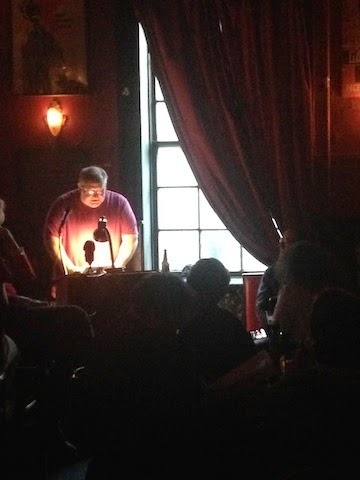
Ellen Datlow and Jack Womack arranged for what they called A Celebration of the Work of Lucius Shepard but which, let's be honest, was actually a wake for the Big Guy, at KGB Bar in New York City last night. Usually, when Marianne and I drive the hundred miles from Philadelphia for a science fiction event in the Apple, we're the people who came the furthest. This time, though, folks came from all over. Jeff Ford drove all the way from Ohio and Bruce and Carlene Chrumka came down from Canada, and there may well have been others from far places. This is how high a regard we all had for the man and now have for his memory.
If I start to list the people like Sheila Williams and Paul Witcover and Gordon Van Gelder who came to the front of the church to testify, we'll be here all night. As it seemed at times we would be yesterday. There were a lot of people who wanted to say how much Lucius meant to them. Most moving, I thought, were the words spoken by his son, Gulliver.
I did not speak, because I only got around to telling Sheila I was coming a few days ago, by which time the event was booked solid. But had I spoken, this is what I'd have said:
I'm not sure when I realized that Lucius was not a great science fiction writer but, rather, a great American writer. Sometime before he wrote "Only Partly There," surely. Possibly it was when "Beast of the Heartland" came out. But I suspect it was when he introduced a protagonist as "an American fool of no consequence." Lucius was exactly the opposite of that, a man of great consequence indeed. Alas, he was not a natural novelist and whom the gods would impoverish, they first give a particular genius for short fiction. It's a miracle and a testimony to his hard work that he didn't starve to death decades ago.
Now he's gone. Lucius did his part -- he left behind a tremendous amount of fiction. We'll be sorting it all out for decades to come. But literary reputations, in this country at least, are only half built upon the work itself. For a writer to make it into the canon, there must be gossipy stories of him or her behaving badly.
Here's my contribution. Jeff wants me to tell Lucius's formula for winning a Hugo, but that story's too scurrilous for tonight. I could have told his formula for selling to Ellen Datlow, but I think I'm going to keep that one for myself, in case I need it someday. Two people have told the Irish Car Bomb story tonight and a third has referred to it. But I prefer my own version, not least because it involves me. So that what I'll tell.
Years ago, at a science fiction convention, I went into the bar and discovered Lucius Shepard and Jeff Ford there. So naturally I invited myself to their table. Hours went by, in which I matched them -- big men both -- beer for beer, while we talked about everything under the sun. Good talk, with the horns and hooves still attached, as Ray Lafferty used to put it.
Then Lucius suddenly said, "Well. Time for the Irish car bombs!"
"Yeah!" Jeff said enthusiastically, rubbing his hands together. "Irish car bombs!"
Now, an Irish car bomb, for the uninitiated is an appalling drink. You start with a pint of Guinness. Then you float a shot of Bailey's Irish Cream on top of it. Finally, you take a shot glass full of Jameson's Irish Whiskey and drop it in. Disgusting.
I whipped up my wrist and looked at it. I wasn't wearing a watch, but if you do the gesture right, and the people you're with have been drinking, you can almost always get away with this. "Oh my goodness!" I cried. "Look at the time -- it's ten o'clock. i should have been in bed hours ago!" And I fled.
My mother didn't raise any fools.
The next morning I ran into Lucius, standing in front of the now-closed bar. I have no idea if he'd been to bed at all that night. But he was looking a little wobbly. After I'd greeted him, he leaned in toward me, like a schooner keeling to the side under a heavy wind, and confided, "I had nine Irish car bombs." Then, like that same schooner righting itself, he resumed an upright position.
He waited a beat -- Lucius's timing was always impeccable -- and then he leaned toward me again, to say, "I believe eleven is possible."
And the moral of this story is . . .
Lucius lived hard, drank hard, wrote hard. By some lights he was a victim of the Myth of the Great Writer, the idea that true genius is such a tremendous burden as to render self-medication and, indeed, self-destruction a necessary component of one's greatness. By others, he was the victim of an abusive father who was ambitious to become a great writer by proxy. I don't think any of us really understood his dark side, though we could all see it was there.
But despite that, Lucius left behind not only a tremendous body of work, but also a great many friends who miss him terribly. One would be enough to justify a lot. Only a very few of us manage both.

Above, top: Jeff Ford. Above, bottom: Gulliver Shepard.
*

Ellen Datlow and Jack Womack arranged for what they called A Celebration of the Work of Lucius Shepard but which, let's be honest, was actually a wake for the Big Guy, at KGB Bar in New York City last night. Usually, when Marianne and I drive the hundred miles from Philadelphia for a science fiction event in the Apple, we're the people who came the furthest. This time, though, folks came from all over. Jeff Ford drove all the way from Ohio and Bruce and Carlene Chrumka came down from Canada, and there may well have been others from far places. This is how high a regard we all had for the man and now have for his memory.
If I start to list the people like Sheila Williams and Paul Witcover and Gordon Van Gelder who came to the front of the church to testify, we'll be here all night. As it seemed at times we would be yesterday. There were a lot of people who wanted to say how much Lucius meant to them. Most moving, I thought, were the words spoken by his son, Gulliver.
I did not speak, because I only got around to telling Sheila I was coming a few days ago, by which time the event was booked solid. But had I spoken, this is what I'd have said:
I'm not sure when I realized that Lucius was not a great science fiction writer but, rather, a great American writer. Sometime before he wrote "Only Partly There," surely. Possibly it was when "Beast of the Heartland" came out. But I suspect it was when he introduced a protagonist as "an American fool of no consequence." Lucius was exactly the opposite of that, a man of great consequence indeed. Alas, he was not a natural novelist and whom the gods would impoverish, they first give a particular genius for short fiction. It's a miracle and a testimony to his hard work that he didn't starve to death decades ago.
Now he's gone. Lucius did his part -- he left behind a tremendous amount of fiction. We'll be sorting it all out for decades to come. But literary reputations, in this country at least, are only half built upon the work itself. For a writer to make it into the canon, there must be gossipy stories of him or her behaving badly.
Here's my contribution. Jeff wants me to tell Lucius's formula for winning a Hugo, but that story's too scurrilous for tonight. I could have told his formula for selling to Ellen Datlow, but I think I'm going to keep that one for myself, in case I need it someday. Two people have told the Irish Car Bomb story tonight and a third has referred to it. But I prefer my own version, not least because it involves me. So that what I'll tell.
Years ago, at a science fiction convention, I went into the bar and discovered Lucius Shepard and Jeff Ford there. So naturally I invited myself to their table. Hours went by, in which I matched them -- big men both -- beer for beer, while we talked about everything under the sun. Good talk, with the horns and hooves still attached, as Ray Lafferty used to put it.
Then Lucius suddenly said, "Well. Time for the Irish car bombs!"
"Yeah!" Jeff said enthusiastically, rubbing his hands together. "Irish car bombs!"
Now, an Irish car bomb, for the uninitiated is an appalling drink. You start with a pint of Guinness. Then you float a shot of Bailey's Irish Cream on top of it. Finally, you take a shot glass full of Jameson's Irish Whiskey and drop it in. Disgusting.
I whipped up my wrist and looked at it. I wasn't wearing a watch, but if you do the gesture right, and the people you're with have been drinking, you can almost always get away with this. "Oh my goodness!" I cried. "Look at the time -- it's ten o'clock. i should have been in bed hours ago!" And I fled.
My mother didn't raise any fools.
The next morning I ran into Lucius, standing in front of the now-closed bar. I have no idea if he'd been to bed at all that night. But he was looking a little wobbly. After I'd greeted him, he leaned in toward me, like a schooner keeling to the side under a heavy wind, and confided, "I had nine Irish car bombs." Then, like that same schooner righting itself, he resumed an upright position.
He waited a beat -- Lucius's timing was always impeccable -- and then he leaned toward me again, to say, "I believe eleven is possible."
And the moral of this story is . . .
Lucius lived hard, drank hard, wrote hard. By some lights he was a victim of the Myth of the Great Writer, the idea that true genius is such a tremendous burden as to render self-medication and, indeed, self-destruction a necessary component of one's greatness. By others, he was the victim of an abusive father who was ambitious to become a great writer by proxy. I don't think any of us really understood his dark side, though we could all see it was there.
But despite that, Lucius left behind not only a tremendous body of work, but also a great many friends who miss him terribly. One would be enough to justify a lot. Only a very few of us manage both.

Above, top: Jeff Ford. Above, bottom: Gulliver Shepard.
*
Published on June 16, 2014 08:00
June 15, 2014
Two Jims
.
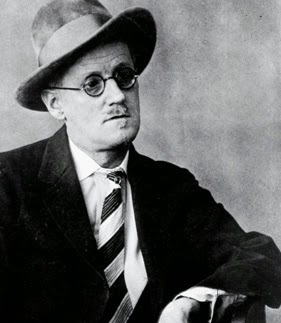
On June 15, 1914, after years of rejection by editor after editor, James Joyce's first book, The Dead , a collection of stories that would change the way literature was written, was finally published. What better way of celebrating its first centenary could there be than by bringing back memories of the late Jim Turner?
Turner was editor of Arkham House and, later, founder and editor of Golden Gryphon Press. He was also the only man on earth I would deliberately keep on the phone as many hours as I possibly could. I really enjoyed his conversation and the way he thought.
One day, Jim called and began, in his customary fashion by saying, all in a rush (he was always conscious of times winged chariot in the years that I knew him), "Listen, Swanwick, I don't have time for any of your nonsense. I just need an answer to one question and that's all."
"Hi, Jim," I said. "I just finished writing a zombie story."
"Yeah, yeah, that's nice. The reason I called --"
"It has a really good title, Jim."
"Good for it. What I want to know is --"
"Don't you want to know what the title is, Jim?"
"Oh, all right! What is it?"
"I called it 'The Dead.'"
There was a stunned silence. Then, "You cannot give the title of the single most famous story in the English language to a zombie story!"
"Well, it was really good zombie story, Jim."
Ah, me. I miss that guy. Jim was a guy who held literature in the highest esteem and gave his life to its furtherance. As did the other Jim, the guy who wrote the collection that's a hundred years old today. Tonight I'll raise a glass to the both of them.
*

On June 15, 1914, after years of rejection by editor after editor, James Joyce's first book, The Dead , a collection of stories that would change the way literature was written, was finally published. What better way of celebrating its first centenary could there be than by bringing back memories of the late Jim Turner?
Turner was editor of Arkham House and, later, founder and editor of Golden Gryphon Press. He was also the only man on earth I would deliberately keep on the phone as many hours as I possibly could. I really enjoyed his conversation and the way he thought.
One day, Jim called and began, in his customary fashion by saying, all in a rush (he was always conscious of times winged chariot in the years that I knew him), "Listen, Swanwick, I don't have time for any of your nonsense. I just need an answer to one question and that's all."
"Hi, Jim," I said. "I just finished writing a zombie story."
"Yeah, yeah, that's nice. The reason I called --"
"It has a really good title, Jim."
"Good for it. What I want to know is --"
"Don't you want to know what the title is, Jim?"
"Oh, all right! What is it?"
"I called it 'The Dead.'"
There was a stunned silence. Then, "You cannot give the title of the single most famous story in the English language to a zombie story!"
"Well, it was really good zombie story, Jim."
Ah, me. I miss that guy. Jim was a guy who held literature in the highest esteem and gave his life to its furtherance. As did the other Jim, the guy who wrote the collection that's a hundred years old today. Tonight I'll raise a glass to the both of them.
*
Published on June 15, 2014 10:01
June 13, 2014
Boycott Shrimp
.
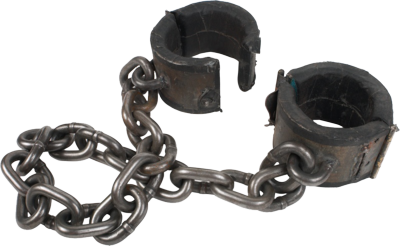
We all like to think that, were we alive two hundred years ago, we would be vigorously anti-slavery. But slavery, alas, is not confined to the past.
The Guardian has published a shocking article about the Thai shrimp fishing industry, where large numbers of men are bought and sold like animals, tortured, and sometimes killed . . . all so that our supermarkets can have a ready supply of cheap shrimp.
Unlike too many of the world's atrocities, this is one we can do something about. Here's the relevant sentence from the article: "An anonymous Thai government spokesman claims that the problem could be easily dealt with, but there is no political will to do so."
Let's create the political will. Boycott shrimp. Tell everyone you know. Put a link to the Guardian article on your blog. Share it on Facebook. Tweet it. When the supermarkets can't give the stuff away, and tons of shrimp lie rotting in the holds of the slave fleets, and the Thai shrimp industry is on the verge of collapse, something will be done.
But apparently not before then.
You can read the Guardian article here. Parts of it will make you feel ashamed to be human.
Me, I love shrimp. But I will not eat it again, no matter what the source, while this goes on.
*

We all like to think that, were we alive two hundred years ago, we would be vigorously anti-slavery. But slavery, alas, is not confined to the past.
The Guardian has published a shocking article about the Thai shrimp fishing industry, where large numbers of men are bought and sold like animals, tortured, and sometimes killed . . . all so that our supermarkets can have a ready supply of cheap shrimp.
Unlike too many of the world's atrocities, this is one we can do something about. Here's the relevant sentence from the article: "An anonymous Thai government spokesman claims that the problem could be easily dealt with, but there is no political will to do so."
Let's create the political will. Boycott shrimp. Tell everyone you know. Put a link to the Guardian article on your blog. Share it on Facebook. Tweet it. When the supermarkets can't give the stuff away, and tons of shrimp lie rotting in the holds of the slave fleets, and the Thai shrimp industry is on the verge of collapse, something will be done.
But apparently not before then.
You can read the Guardian article here. Parts of it will make you feel ashamed to be human.
Me, I love shrimp. But I will not eat it again, no matter what the source, while this goes on.
*
Published on June 13, 2014 10:19
June 11, 2014
It Was a Dark and Stormy Night...
*

The August 2014 issue of Asimov's arrived in the mail today. So I opened it and began reading the openings of the stories one after the other to see which I would read first. (This is a very common practice among readers, though in most cases they're looking to see which they should read at all.) Three stories in, I came to:
"We have a winner!" I cried.
That was how Nancy Kress opens "Writer's Block." Nancy is one of the craftiest of writers, in the sense of knowing her craft inside and out and this is typical of her savvy. You might think that it's just a "narrative hook" meant to draw the reader into the story out of simple curiosity. But more than that, the witty use and refutation of Bulwer-Lytton's single best known sentence is an inherent promise to the reader that there will be more good stuff in the story that follows.
In her first two sentences, Nancy gives the reader a reason to stay with the story.
And, yes, not-yet-published-but-working-hard-on-it writers, this post is directed at YOU.
Above: Nancy Kress and Yours Truly in China. Have I ever mentioned that I was in China? And Nancy Kress was there too! How cool is that?
*

The August 2014 issue of Asimov's arrived in the mail today. So I opened it and began reading the openings of the stories one after the other to see which I would read first. (This is a very common practice among readers, though in most cases they're looking to see which they should read at all.) Three stories in, I came to:
It was a dark and stormy night. But it shouldn't have been.
"We have a winner!" I cried.
That was how Nancy Kress opens "Writer's Block." Nancy is one of the craftiest of writers, in the sense of knowing her craft inside and out and this is typical of her savvy. You might think that it's just a "narrative hook" meant to draw the reader into the story out of simple curiosity. But more than that, the witty use and refutation of Bulwer-Lytton's single best known sentence is an inherent promise to the reader that there will be more good stuff in the story that follows.
In her first two sentences, Nancy gives the reader a reason to stay with the story.
And, yes, not-yet-published-but-working-hard-on-it writers, this post is directed at YOU.
Above: Nancy Kress and Yours Truly in China. Have I ever mentioned that I was in China? And Nancy Kress was there too! How cool is that?
*
Published on June 11, 2014 09:55
June 9, 2014
A Third of a Decade Later, I Finally Learn...
.
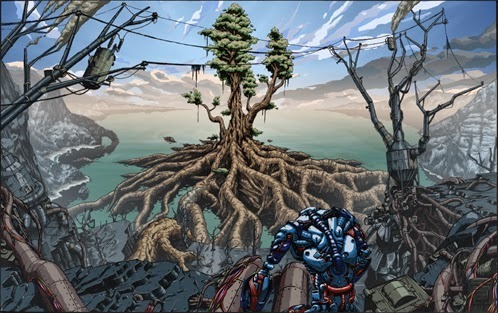
Nobody ever tells me anything. The last time I was in Russia, I learned that a poet had dropped a reference to The Iron Dragon's Daughter in one of his poems. It was a thrill to discover, but many years had gone by since the poem was written. I remember thinking then, "Nobody thought I'd want to know?"
I just now got a note from Carl Slaughter to let me know that on Friday Daily Science Fiction republished a story by Jay Lake titled "'Hello,' Said the Gun."
First of all, a few words of background. Umpety-ump years ago, I wrote a story called "'Hello,' Said the Stick." It placed on the Hugo ballot for best short story -- and lost. Which is okay because there is no shame to losing to a story by Geoff Ryman. And anyway, "Slow Life" won for best novelette that year.
So, inspired by who knows what impulse, Jay wrote a story playing off of the opening of mine. This is fair practice. He gave it a near-identical title to acknowledge the origins. Which is very polite. And the story was published. On February 22, 2010.
A third of a decade later, I have just become aware of its existence. Nobody tells me anything!
The story itself is a lovely little thing, which after the first few paragraphs goes off in a direction completely different from where my own story went. Like so much relating to Jay and his life, I wish it had been longer.
You can read the story here.
And let me add . . .
Thank you for telling me about the story's existence, Carl. I was really happy to learn of it.
Above: The illustration for Jay's story is by Tim Stewart. Nice piece of work, innit?
*

Nobody ever tells me anything. The last time I was in Russia, I learned that a poet had dropped a reference to The Iron Dragon's Daughter in one of his poems. It was a thrill to discover, but many years had gone by since the poem was written. I remember thinking then, "Nobody thought I'd want to know?"
I just now got a note from Carl Slaughter to let me know that on Friday Daily Science Fiction republished a story by Jay Lake titled "'Hello,' Said the Gun."
First of all, a few words of background. Umpety-ump years ago, I wrote a story called "'Hello,' Said the Stick." It placed on the Hugo ballot for best short story -- and lost. Which is okay because there is no shame to losing to a story by Geoff Ryman. And anyway, "Slow Life" won for best novelette that year.
So, inspired by who knows what impulse, Jay wrote a story playing off of the opening of mine. This is fair practice. He gave it a near-identical title to acknowledge the origins. Which is very polite. And the story was published. On February 22, 2010.
A third of a decade later, I have just become aware of its existence. Nobody tells me anything!
The story itself is a lovely little thing, which after the first few paragraphs goes off in a direction completely different from where my own story went. Like so much relating to Jay and his life, I wish it had been longer.
You can read the story here.
And let me add . . .
Thank you for telling me about the story's existence, Carl. I was really happy to learn of it.
Above: The illustration for Jay's story is by Tim Stewart. Nice piece of work, innit?
*
Published on June 09, 2014 06:54
June 6, 2014
The Tote Bag of DOOM!
.

My friend Fran Wilde took it into her head to poll a number of writers about the best book swag they ever received, and I chanced to be one of those she asked.
Well... I couldn't say that any book swag I ever received rose very high above the level of disposable. But if you were to ask if any item was particularly memorable, I would have to reply, "Well, there was one tote bag that gave me a moment of sheer terror." So that was the story I told.
For obvious reasons there is no photo of the tote.
You can find the article here. Or you can just go to the Apex Publications webite and poke around here.
Above: Not a tote bag, obviously. In fact, a photo of Fran Wilde.
*

My friend Fran Wilde took it into her head to poll a number of writers about the best book swag they ever received, and I chanced to be one of those she asked.
Well... I couldn't say that any book swag I ever received rose very high above the level of disposable. But if you were to ask if any item was particularly memorable, I would have to reply, "Well, there was one tote bag that gave me a moment of sheer terror." So that was the story I told.
For obvious reasons there is no photo of the tote.
You can find the article here. Or you can just go to the Apex Publications webite and poke around here.
Above: Not a tote bag, obviously. In fact, a photo of Fran Wilde.
*
Published on June 06, 2014 07:04
June 4, 2014
The Man With The Cancer Tattoo
.

There's this New Age thing about living each day as if you knew it would be your last.
If I knew I would die tomorrow, I would get stupid drunk. Then I'd fall into my car, looking for trouble. I might vomit on a cop. I might lose all my money to a whore. I'd certainly curse a lot. I absolutely wouldn't want to be judged by what I did in the shadow of my life sentence.
Jay Lake was made of better stuff.
When Jay learned he had terminal cancer, he resolved to fit a lifetime's accomplishment into what little time he had. He wrote like a motherfucker. He blogged about his fight with cancer. He created a lapel pin to give to all the nominees for the Campbell Award. (And you will pry mine from my cold, dead fingers aeons after Charlton Heston says, "Take my guns. Please!") He gave money to struggling new writers. He supported new writers who didn't need money but did need to know that somebody cared. He did many, many positive things that you'll have to run a web search to discover and more that you'll never know about.
He had a tattoo on the back of his head reading IF YOU CAN READ THIS, I HAVE CANCER AGAIN. I have a photo somewhere of him and Marianne flaunting their bare pates. And grinning, grinning, grinning. Because they knew a harsh truth the rest of us do not and were able to laugh in the shadow of death. Marianne got better. Jay did not.
I met him. I liked him. I hated the fact that he was dying of cancer almost as much as he did.
And now he's dead.
I will not curse the universe for this. After the first death there is no more. Also, it's not what HE would have done.
But if you want to mark the man's passing, go out today and do that good thing you've been meaning to get around to someday.
Jay would approve.
Photo Credit: Joseph E. Lake, Jr. / CC BY-NC-SA 3.0
*

There's this New Age thing about living each day as if you knew it would be your last.
If I knew I would die tomorrow, I would get stupid drunk. Then I'd fall into my car, looking for trouble. I might vomit on a cop. I might lose all my money to a whore. I'd certainly curse a lot. I absolutely wouldn't want to be judged by what I did in the shadow of my life sentence.
Jay Lake was made of better stuff.
When Jay learned he had terminal cancer, he resolved to fit a lifetime's accomplishment into what little time he had. He wrote like a motherfucker. He blogged about his fight with cancer. He created a lapel pin to give to all the nominees for the Campbell Award. (And you will pry mine from my cold, dead fingers aeons after Charlton Heston says, "Take my guns. Please!") He gave money to struggling new writers. He supported new writers who didn't need money but did need to know that somebody cared. He did many, many positive things that you'll have to run a web search to discover and more that you'll never know about.
He had a tattoo on the back of his head reading IF YOU CAN READ THIS, I HAVE CANCER AGAIN. I have a photo somewhere of him and Marianne flaunting their bare pates. And grinning, grinning, grinning. Because they knew a harsh truth the rest of us do not and were able to laugh in the shadow of death. Marianne got better. Jay did not.
I met him. I liked him. I hated the fact that he was dying of cancer almost as much as he did.
And now he's dead.
I will not curse the universe for this. After the first death there is no more. Also, it's not what HE would have done.
But if you want to mark the man's passing, go out today and do that good thing you've been meaning to get around to someday.
Jay would approve.
Photo Credit: Joseph E. Lake, Jr. / CC BY-NC-SA 3.0
*
Published on June 04, 2014 08:22
Michael Swanwick's Blog
- Michael Swanwick's profile
- 546 followers
Michael Swanwick isn't a Goodreads Author
(yet),
but they
do have a blog,
so here are some recent posts imported from
their feed.



